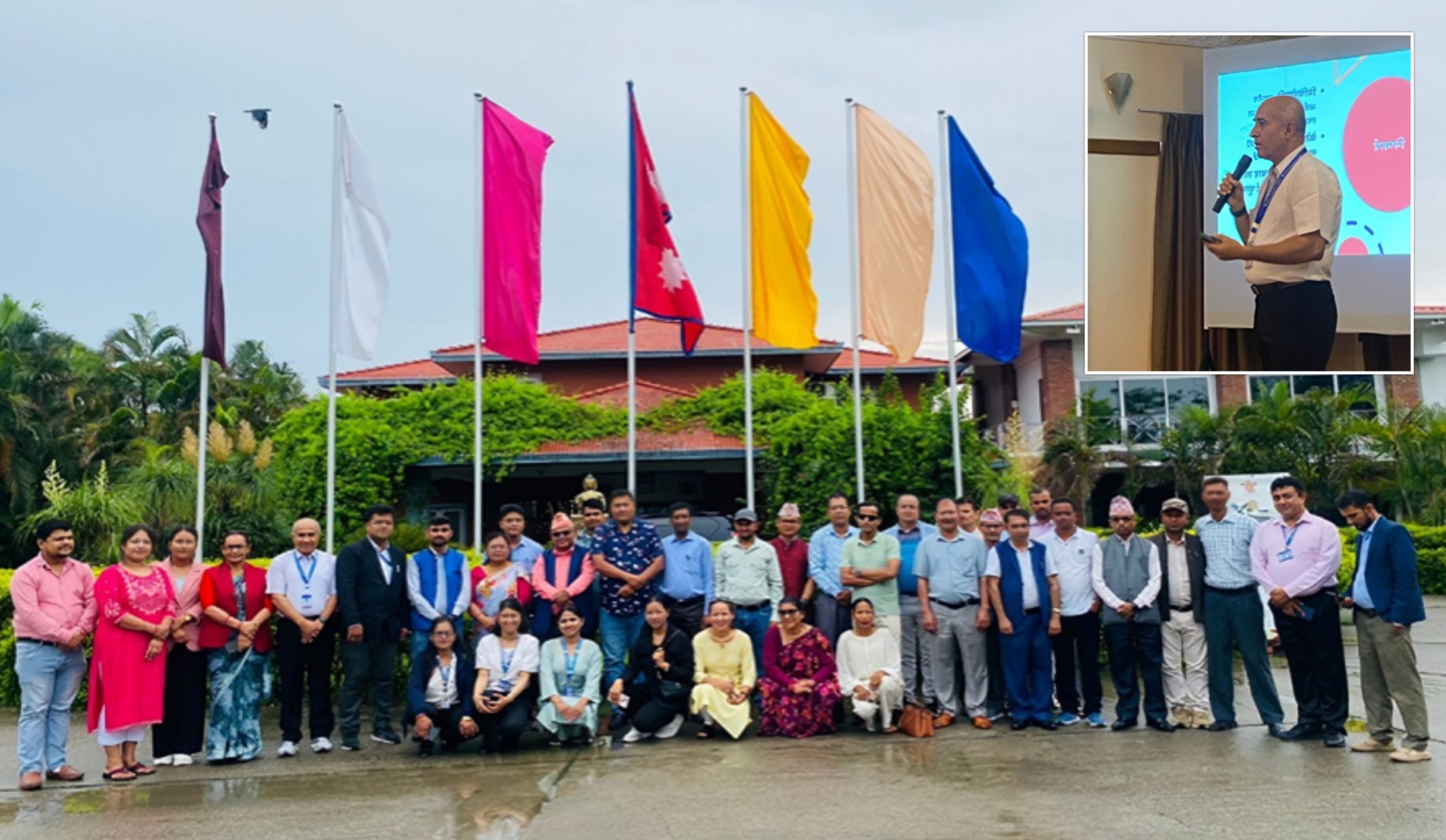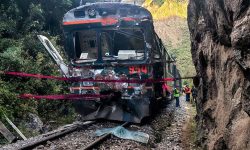Developing Nepal’s Local Economy through Michi-no-Ekis: Insights from Prof. Bhattarai

September 6, 2024. Prof. Dr. Raj Kumar Bhattarai, a renowned expert on innovation and enterpreneurship development, recently shed light on the significance of localizing the Japanese concept of Michi no Ekis (roadside stations) to develop Nepal’s local economies. His presentation was a central highlight of a series of provincial workshops organized by the Nepal Development Research Institute (NDRI), in collaboration with the International Development Research Centre (IDRC), Canada.
As part of the project titled “Promoting Innovation and Inclusion in Growth Potential Enterprises: Evidence from Nepal”, three major workshops were held across different provinces. These events, recently conducted in Sunsari, Dadeldhura, and Rupandehi districts, brought together representatives from government, private sector, municipalities and rural municipalities nationwide. Participants from Madhesh and Koshi Provinces included in the workshop held in Itahari of Sunsari district followed by Sudurpaschim Province held in Amargadi of Dadeldhura district, and a final gathering with participants from Lumbini, Karnali, and Gandaki Provinces in Butwal of Rupandehi district.
During his engaging presentation, Prof. Bhattarai emphasized the Michi no Eki model from Japan—a system that offers travelers not only convenience in terms of parking, restrooms, and emergency services but also a place to experience local culture, products, and tourism. These rest areas are designed to blend convenience with regional development, making them a core asset to boost tourism and the local economy.
Prof. Bhattarai elaborated on how this concept could be adapted for Nepal, especially within the context of promoting local farmers, artisans, and entrepreneurs. He proposed that local Michi no Eki stations could serve as direct platforms for farmers and business owners to market and sell their goods, bypassing intermediaries.
In addition, these stations could evolve into hubs for agro-tourism, offering visitors the opportunity to participate in agricultural activities and purchase fresh produce. Prof. Bhattarai suggested for public-private-partnership (PPP) to contextualize the idea of Michi no Ekis and develop them as vibrant centers for local development
Another significant aspect of Prof. Bhattarai’s proposal was the potential of Michi no Ekis to serve as emergency response hubs during natural disasters or accidents, further enhancing the role of these stations in ensuring public safety.
The workshop attendees, particularly the officials from municipalities and rural municipalities, were captivated by the potential of Michi no Eki to revitalize their local economy. Among the participants, mayors from five municipalities instantly expressed enthusiasm for the idea of promoting indigenous knowledge, skills, and resources (IKSaR) through such initiatives, thus enhancing local economies and fostering cultural pride.
Prof. Bhattarai’s advocacy for Michi no Eki has sparked interest in how these stations could play a transformative role in municipalities and rural municipalities across the country, supporting the economic development of a diverse communities while promoting sustainability and self-reliance.
(Professor Bhattarai has recently fompleted his research project ‘exploring michi-no-ekis of Japan in search of adaptable business schemata’ under the financial support of The Sumitomo Foundation, Tokyo)













 आज कांग्रेसको केन्द्रीय कार्यसम्पादन समिति बैठक बस्दै
आज कांग्रेसको केन्द्रीय कार्यसम्पादन समिति बैठक बस्दै आज कुन विदेशी मुद्राको विनिमयदर कति ?
आज कुन विदेशी मुद्राको विनिमयदर कति ? आजकाे माैसम: तराईमा हुस्सुको प्रभाव, उच्च पहाडी क्षेत्रमा हल्का वर्षा र हिमपातको सम्भावना
आजकाे माैसम: तराईमा हुस्सुको प्रभाव, उच्च पहाडी क्षेत्रमा हल्का वर्षा र हिमपातको सम्भावना पुस १८ गते शुक्रवारकाे राशिफल,कस्ताे रहला तपाइकाे आजकाे दिन ?
पुस १८ गते शुक्रवारकाे राशिफल,कस्ताे रहला तपाइकाे आजकाे दिन ? ६४ दलले बुझाए समानुपातिकको बन्द सूची
६४ दलले बुझाए समानुपातिकको बन्द सूची शून्यदेखि सगरमाथाले पायो बेस्ट एसियन फिल्म अवार्ड
शून्यदेखि सगरमाथाले पायो बेस्ट एसियन फिल्म अवार्ड ग्यास बोकेको ट्याङ्कर दुर्घटना हुँदा पूर्वपश्चिम महेन्द्र राजमार्ग अवरुद्ध
ग्यास बोकेको ट्याङ्कर दुर्घटना हुँदा पूर्वपश्चिम महेन्द्र राजमार्ग अवरुद्ध कांग्रेसले बुझायो समानुपातिक उम्मेदवारकाे सूची
कांग्रेसले बुझायो समानुपातिक उम्मेदवारकाे सूची
प्रतिक्रिया